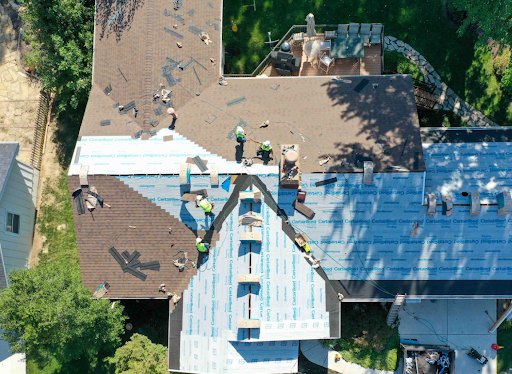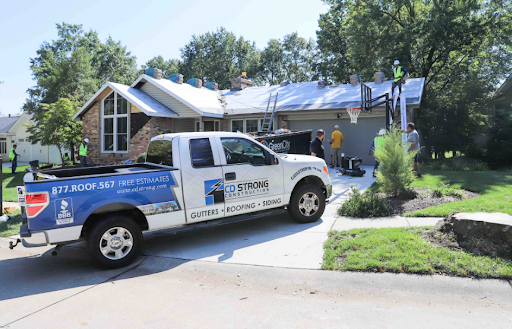Severe weather can cause significant damage to your roof, leading to costly and lengthy repairs. From strong winds to heavy snowfall and hail, extreme weather can take its toll on your roof, causing shingles to break, cracks to form, and leaks to occur. It is essential to understand how severe weather affects your roof so that you can take steps to prevent serious damage and keep your roof in top condition. Let's explore the different ways that severe weather can damage your roof, as well as how you can protect your roof from further harm.
Different Types of Severe Weather Can Damage Your Roof
Wind
Strong winds can cause your roof to suffer from damage, such as the loss of shingles and the formation of cracks. When the wind is too strong, it can cause your roof to lift and create a "V," "S," or "U" shape. This damage is known as "shaking," a serious issue that can lead to leaks and further damage. To prevent "shaking," you must install a roof rack or replace the roof's shingles. If the damage is too severe or you need a roof repair, you may be able to fix the damage yourself.
Heavy Rain
Heavy rain can cause your roof to leak and cause "shaking." The more water that gets underneath your roofing materials, the more likely it is to cause damage.
Extreme Hot and Cold Temperatures
As your roof collects heat from the sun during the day, it can expand, busting shingles, causing leaks, and cracking tiles. If the weather gets too cold, your roof can contract, creating damage and opening your roof to further damage.

How to Inspect Your Roof for Signs of Damage
Before attempting any repairs, it is essential to inspect your roof for signs of damage. You can inspect your roof by climbing onto it, looking for damage, and walking around it to see if it is level. If your roof is damaged, you will want to find the source of the damage and take steps to prevent further damage. When inspecting your roof, look for the following signs of damage:
- Shingles that are missing or appear to be damaged
- Cracks in your roof tiles
- Leaks in your roof
- Damaged shingles that are missing or have blown off
- A roof that appears to be wavy, wobbly, or tilted
- Spikes or anchors on your roof that are missing or appear to be damaged
- Porches or extensions that are out of alignment with your main house
If any of these indicators are present, you will need to find the source of the damage and prevent further damage.
Tips for Protecting Your Roof from Severe Weather
- Inspect your roof regularly for signs of damage and repairs.
- Hire a roofing contractor to perform an inspection at least once every two years.
- Re-shingle your roof every 25 years or sooner.
- Install gutters to divert water from your roof.
- Install a sump pump that can pump water away from your basement and onto your yard.
- Create a plan to protect your home in the event of severe weather events.
When to Call a Professional for Help
If your roof suffers any damage from severe weather, you will want to call a roofing contractor immediately. A professional roofing contractor can inspect your roof and make recommendations for repairs. They can also tell you when to expect the damage to your roof to be repaired.
A professional roofing contractor can also advise you on the best course of action for protecting your home in the event of a future severe weather event. Depending on the extent of the damage, you will want to implement specific measures to protect your home and your family. These measures include moving your furniture away from your windows or installing storm or impact windows.

Protect Your Home
Severe weather causes significant damage to your roof, causing leaks, broken shingles, and damage to your home's structural integrity. When severe weather strikes, there is a chance that your roof will suffer serious damage. However, with the proper preparation, you can protect your roof from these harsh conditions.
To protect your roof from damage, you will want to inspect your roof for damage, install gutters, create a plan to protect your home in the event of a severe weather event, and install a sump pump to protect your basement from flooding. If your roof suffers any damage, you will want to call a roofing contractor immediately.
CD Strong Is Here to Help
When you work with our team, we look out for you to ensure you get a quality roofing job that will last for years. We can also work with your insurance company to make the process as smooth as possible. We have 24-hour emergency service in case of severe weather.
Contact us today!



